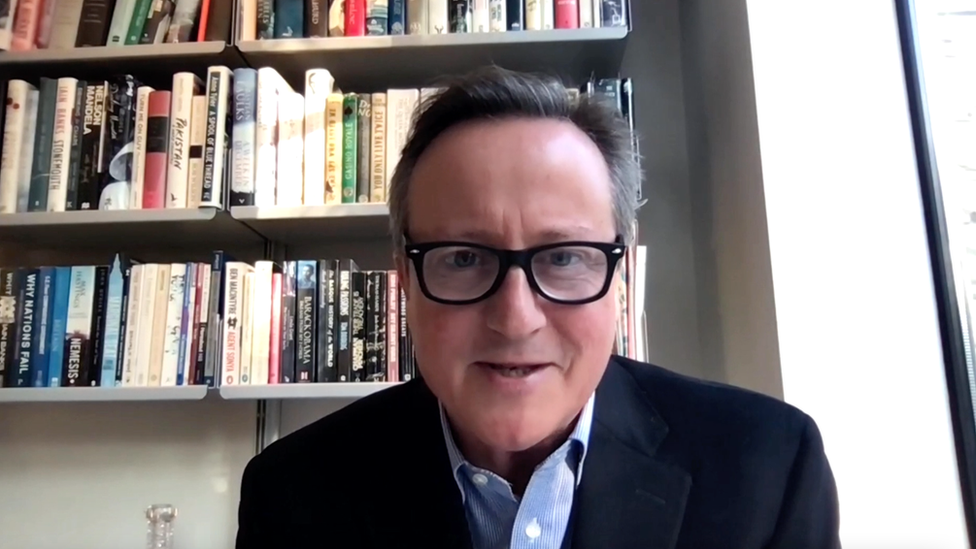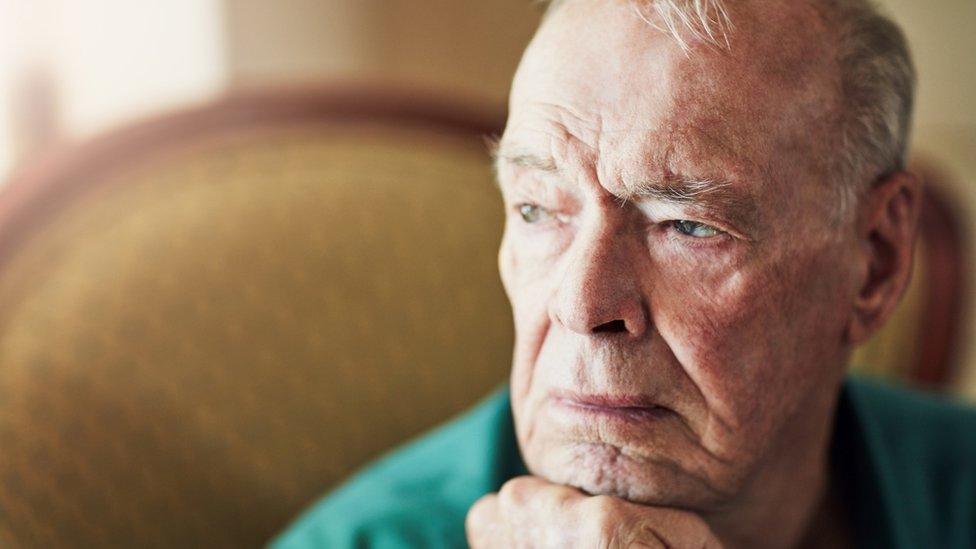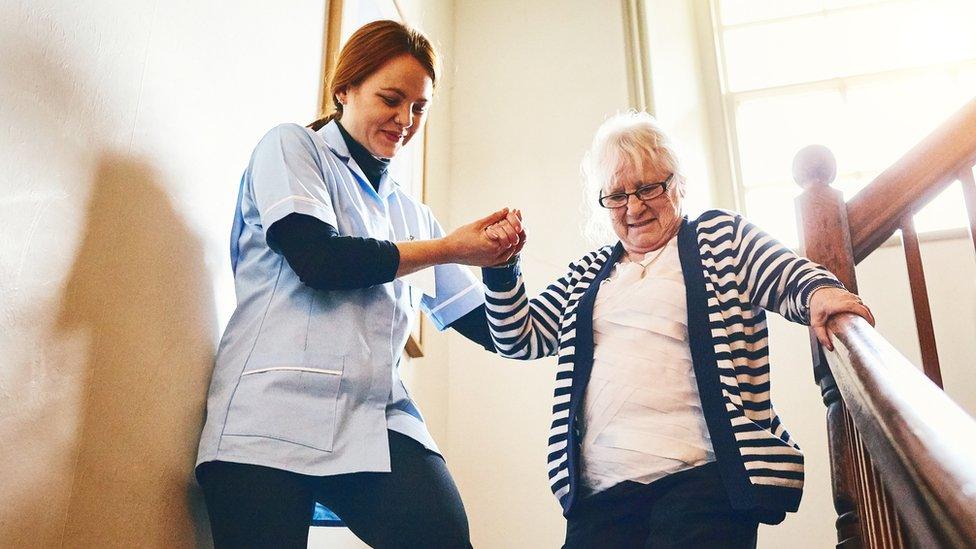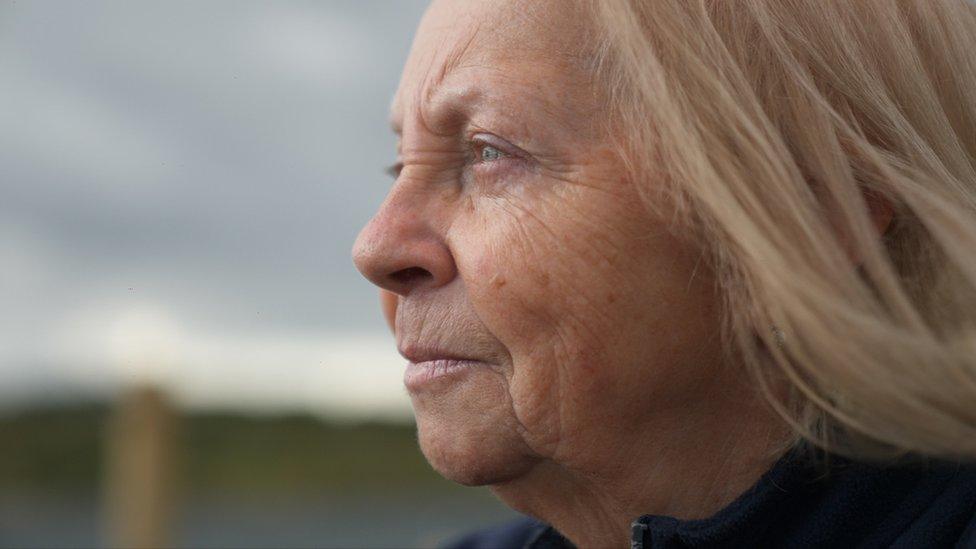Social-care insurance scheme needed, David Cameron says
- Published

Tory governments have failed to cut the "catastrophic costs" of social care and should now look at an "insurance intervention", David Cameron has said.
The former prime minister told BBC News his government "looked at, but couldn't crack" the issue of people having to sell their homes in old age.
A cap on the amount people in England pay for their social care was due to be introduced in October 2023.
But this was postponed for two years in the chancellor's autumn statement.
Jeremy Hunt blamed concerns over staffing and financial pressures on health and social-care services.
'Better-off households'
The plans included a more generous means test and a lifetime cap on personal care costs of £86,000.
The cap was first proposed by economist Sir Andrew Dilnot in 2011.
Mr Cameron, president of Alzheimer's Research UK, told the BBC's Newscast podcast: "The problem governments keep coming across is that while the Dilnot cap... is a very good idea, it does tend to benefit relatively better-off households.
"If I had any advice for my successors now - and I try to keep my interventions to a minimum because their jobs are hard enough without ex-prime ministers giving a running commentary - I think looking again, if there isn't some sort of insurance intervention where we can help people protect against the catastrophic costs of selling their home to pay for care, I think that might be a good place to look."
Delaying the introduction of the cap means some people will continue to pay more than £86,000 for their lifetime care needs.
The government said an extra £2.8bn would be available for adult social care next year and £4.7bn the following year.
Allow X content?
This article contains content provided by X. We ask for your permission before anything is loaded, as they may be using cookies and other technologies. You may want to read X’s cookie policy, external and privacy policy, external before accepting. To view this content choose ‘accept and continue’.

Health Secretary Stephen Barclay said 200,000 more care packages would be delivered.
Councils had warned adult care services could deteriorate unless the rollout was postponed.
But Sir Andrew said the delay was "extraordinarily disappointing", accusing Mr Hunt of breaking the Conservatives' 2019 manifesto commitment to fix social care.
Mr Cameron spoke to Newscast on the day health experts and charities welcomed a new drug treatment for Alzheimer's as a ground-breaking moment in the fight against the disease.
Lecanemab is the first drug to slow the brain's destruction - after decades of failed trials.
'Eaten away'
Mr Cameron said: "I've been president of Alzheimer's Research UK for five years now and this, I think, is the happiest day that we've had.
"One can't overdo the enthusiasm but it feels like a breakthrough and it's very good news.
"It will also just push forward a lot more research and a lot more enthusiasm.
"This will really generate some enthusiasm from pharmaceutical companies, from scientists, from all those that we need to work so hard."
Mr Cameron, whose mother, Mary, has Alzheimer's, said: "It's a very tough thing for families. You see someone with their memory just slowly being eaten away at by one of these diseases of the brain.
"We're a country of 60 million people. Soon, we're going to have a million people with dementia. It's going to be the most costly health condition.
"It's going to be the biggest cause of of death. But far from the statistics, it's just going to be a tragedy for so many families. And I've seen that with my own family."
You can hear the full interview with David Cameron on Newscast, on BBC Sounds.
Related topics
- Published20 November 2022

- Published20 November 2022

- Published18 November 2022
